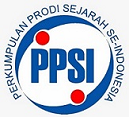Dinamika Sekretariat Bersama Golongan Karya (1965-1971)
(1) Universitas Negeri Jakarta
(2) Universitas Negeri Jakarta
(3) Universitar Negeri Jakarta
(*) Corresponding Author
DOI: https://doi.org/10.26858/jp.v8i2.21212
Abstract
Sejarah pemerintahan Indonesia tidak bisa dilepaskan dari sejarah perkembangan partai politik di setiap masanya. Pasca kemerdekaan muncul banyak partai politik yang berupaya mewakili kepentingan kelompoknya. Salah satu partai politik yang berkembang dengan cepat adalah Sekber Golkar. Sekber Golkar menjadi partai politik yang berkembang dengan cepat terutama setelah Soeharto menggunakannya sebagai alat politik kekuasaanya. Penelitian ini bertujuan untuk mengungkapkan adanya faktor penting dari berpengaruhnya Golkar masa Orde Baru, yaitu dinamika internal di dalam tubuh Sekber Golkar. Dalam penelitian ini membahas adanya sejarah munculnya Sekber Golkar yang berasal dari ide kalangan Angkatan Darat, perseteruan Angkatan Darat dengan PKI, nilai penting Sekber Golkar, peran Soeharto dalam Sekber Golkar, perkembangan Sekber Golkar masa transisi kekuasaan, integrasi internal Sekber Golkar, dan partisipasi Sekber Golkar dalam politik. Metode yang digunakan menggunakan metode penelitian historis analisis dengan menggunakan teori situasi historik untuk membantu penyusunan kerangka analisis tentang penelitian ini. Hasil penelitian ini menunjukan bahwa terdapat peranan penting kelompok sipil dalam kesuksesan Golkar di masa Orde Baru, tidak hanya menunjukan kesuksesan kelompok militer. Sekber Golkar sebagai organisasi baru yang baru dibentuk menjadi faktor penting lain mengapa pada akhir Soeharto dapat mempengaruhi dan berkuasa di Sekber Golkar hingga berakhirnya kekuasaan yang ia miliki pada tahun 1998.
Abtract
The history of the Indonesian government cannot be separated from the history of the development of political parties in each period. After independence, there were many political parties that tried to represent the interests of their groups. One of the rapidly growing political parties is the Golkar Secretary. Sekber Golkar became a political party that developed rapidly, especially after Suharto used it as a political tool for his power. This study aims to reveal the existence of an important factor in the influence of Golkar during the New Order era, namely the internal dynamics within the Golkar Secretariat. This study discusses the history of the emergence of the Golkar Secretariat originating from the ideas of the Army, the Army's feud with the PKI, the importance of the Golkar Secretariat, Suharto's role in the Golkar Secretariat, the development of the Golkar Secretariat during the transition of power, the internal integration of the Golkar Secretariat, and the participation of the Golkar Secretary. in politics. The method used is historical research method analysis using historical situation theory to assist in the preparation of an analytical framework for this research. The results of this study indicate that there is an important role for civilian groups in the success of Golkar during the New Order, not only showing the success of military groups. The Golkar Secretariat as a newly formed organization became another important factor in why Suharto was able to influence and rule at the Golkar Secretariat until the end of his power in 1998.
Keywords : Golkar Secretary, Politics, New Order
Full Text:
PDFReferences
Abdurrahman, D. (1999). Metode Penelitian Sejarah. Logos Wacana Ilmu.
Amal, I. (1988). Teori-teori Mutakhir Partai Politik. Tiara Wacana.
Bulkin, F. (1991). Analisa Kekuatan Politik Di Indonesia (Cet. 3). LP3ES.
Crouch, H. (1999). Militer dan Politik di Indonesia (T. Sumantha (ed.); 2nd ed.). Sinar Harapan.
Effendy, B., Thohari, H. Y., Novianto, K., Alfian, M. A., Nubowo, A., & Danial, A. (2012). Beringin Membangun, Sejarah Politik Partai Golkar. Grafindo Khazanah Ilmu.
Gaffar, A. (1993). Golkar dan Demokratisasi di Indonesia. Aditya Media.
Gottschalk, L. (1986). Mengerti Sejarah. UI Press.
Kartodirjo, S. (1993). Pendekatan Ilmu Sejarah Dalam Metodologi Sejarah. Gramedia.
Kuntowijoyo. (2008). Penjelasan Sejarah. Tiara Wacana.
Kuntowijoyo. (2013). Pengantar Ilmu Sejarah. Tiara Wacana.
Liddle, R. W. (1992). Partisipasi & Partai Politik : Indonesia pada Awal Orde Baru. Pustaka Utama Grafiti.
Pratignyo, I. (1984). Ungkapan Sejarah Lahirnya Golongan Karya. Yayasan Bhakti.
Reeve, D. (2013). GOLKAR : Sejarah yang Hilang, Akar Pemikiran & Dinamika. Komunitas Bambu.
Suryadinata, L. (1992). Golkar dan Militer : Studi Tentang Budaya Politik. LP3ES.
Tandjung, A. (2008). The Golkar Way : Survival Partai Golkar di Tengah Turbulensi Politik Era Transisi. Gramedia.
Varma, S. (1992). Teori Politik Modern. Rajawali.
Article Metrics
Abstract view : 429 times | PDF view : 92 timesRefbacks
- There are currently no refbacks.
Published by:
PROGRAM STUDI PENDIDIKAN SEJARAH
FAKULTAS ILMU SOSIAL
UNIVERSITAS NEGERI MAKASSAR
Kampus UNM Gunung Sari Gedung Fakultas Ilmu Sosial Lantai 3, Jalan Raya Pendidikan, Makassar. 90222.
Phone 082395232077
E-mail: jurnal.pattingalloang@unm.ac.id
jurnalpattingalloang@gmail.com
Indexed by
Licensed by

Pattingalloang is licensed under a Creative Commons Attribution-NonCommercial 4.0 International License.
Pattingalloang Stats
style="text-align: center;












